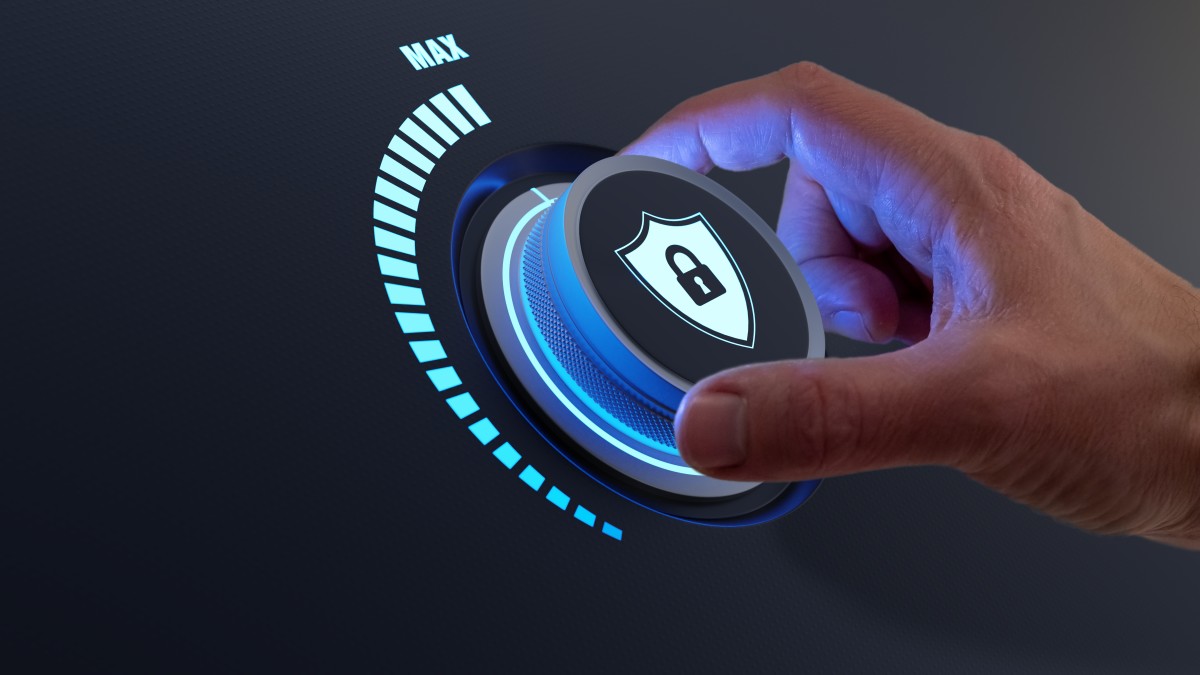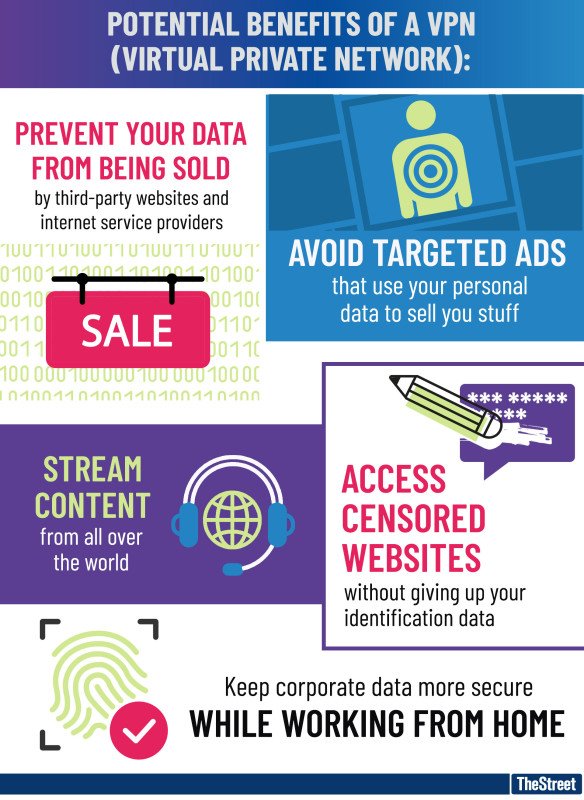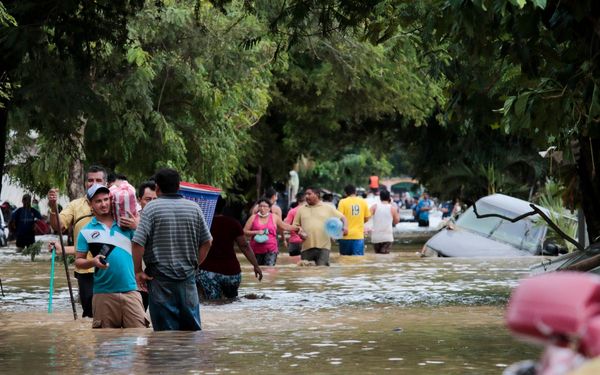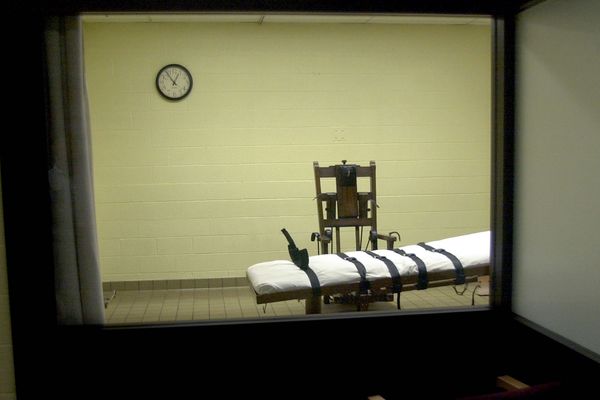
Fast Facts
A VPN can disguise your computer's digital address, helping to keep you safer online.
VPNs allow users to avoid targeted ads and bypass regional content restrictions.
Free VPNs exist, but paid options may provide better privacy.
There are plenty of benefits to having a virtual private network (VPN), even if you've never heard of one. It's an additional layer of encryption that helps hide some of your data from prying eyes.
Digital security has never been more important than it is in this modern era. Plus, if you've ever wondered what it's like to watch Netflix on the other side of the world, a VPN can help you do that, too.
What is a VPN in simple terms?
VPN stands for a "virtual private network." In a nutshell, it creates a third-party between you and the websites you want to access.
A well-chosen VPN essentially scrambles some of your data — including your geographic location — making it harder for third parties like internet service providers (ISPs) or websites to collect it.
VPNs can also help you get past website blocks and censorship. For those in the U.S., demand for these nifty little gadgets has started to creep upward as multiple states have enacted ID verification laws for users wishing to access adult entertainment.
Related: Popular adult film star explains why she thinks Utah's new age verification law won't work
How does a VPN work? Virtual private networks for beginners
Internet service providers have access to mountains of personal data, which is used to, among many other things, sell you personalized ads. Our internet data is stored by these providers, and hackers can gain access to that data. In some parts of the world, including U.S. states, some content is censored — a VPN can also help you clear those kinds of digital hurdles.
A VPN works to encrypt your data, basically scrambling it all up in such a way that makes it harder to trace. More technically, it masks what's called your internet protocol (IP) address.
If the internet were the city you lived in, your IP address would be your computer's home address. If you can see the benefit of getting a post office box, then you might want to consider a reputable VPN service.

TheStreet
Does a VPN protect my data? Does it keep it from being sold?
Nothing on the internet is completely safe — technology is always evolving. No VPN service can give you a 100% guarantee that your data can't be tracked. Correctly using a reputable VPN, however, can still greatly improve your online security and grant you access to regional content.
Does the VPN company collect and sell my data?
Many free VPNs are profitable specifically because they collect and sell your data. But paid VPNs, in some cases, do not. Make sure you know what, if any, data is being logged by your VPN provider before you commit. A software's Terms of Service may be a dense read, but it's always worthwhile to skim through it.
You can also search for a VPN provider based on data collection policies. VPNs that don't store your data are called "no-log" VPNs.
Some of the most popular paid VPNs with strict no-log policies are NordVPN, Surfshark, and Norton Secure VPN. These services are well-known and have built strong reputations for not keeping or selling user data.
Will a VPN stop hackers?
Unfortunately, the short answer is no. The long answer is that hacking is a practice that evolves with technology. And VPNs, just like any other valuable source of data, can be targets for hackers.
However, choosing a larger, more reputable VPN provider means more staff and resources to protect your data from hackers. But as always, if your provider notifies you to change your password, it's best to do so immediately.
Why should I use a VPN?
VPNs are in the news thanks to bans on adult websites, but you don't have to appreciate good smut to benefit from a virtual private network. People get a VPN for a variety of reasons.
Related: Meet the financial planner for strippers, sex workers, and sugar babies
Learning a new language? A VPN can get you access to streaming services based out of different parts of the world. Streaming services have different offerings in different countries, so if you've exhausted all of the Italian-language versions of Netflix's library or watched all of the Korean dramas available in the United States, a VPN can help.
For folks working from home, a VPN can help you securely log in to your job services. Business owners working with valuable company data can sleep a little easier at night knowing that information is safe.
Tired of always being sold stuff every time you get online? Want to avoid regional political ads for the upcoming election year? Concealing your browser history with a VPN can prevent your data from being used to target web advertisements.
How do I get a VPN?
Choosing a VPN is as simple as taking a look at your internet usage. What are your priorities? Do you have a large, internet-heavy household? Or do you mostly just surf the web on your phone? Certain VPN services work better for different household needs.
For the everyday web surfer, protecting your data is probably a top priority. Before you commit, watch YouTube videos to get a feel for how these programs work.
It's important that you feel confident navigating your VPN's software. Making sure you feel comfortable opening and running the software is very important. For those who aren't super tech-savvy, look into the software's customer service reviews, too!
When researching a VPN, another consideration is speed. Do you do a lot of streaming? Is there a gamer in your household? Beefing up your internet security doesn't have to come at the cost of your entertainment.
How do I know if I have a VPN already?
For a simple "yes" or "no" answer, you can go to whatismyproxy.com to find out. Even if the answer is "yes," it's worthwhile to know what services it provides and if it's ideal for your household.
Some services you use may already have a VPN. For example, some antivirus services include VPNs. The two are not the same, however — a VPN is not a virus protector. To find out what or if your antivirus software includes a VPN, check with the software provider.
Are VPNs free?
Some are! If you don't mind your data being collected and sold, a free VPN will do the trick. But the euphemism "you get what you pay for" is worth keeping in mind here. If you're concerned about protecting your data, notable VPN services can run as low as $3 a month.
If you want to try a free VPN before looking into paid options, ProtonVPN offers one of the most popular free VPNs, and users can upgrade to paid versions with additional features at any time.







